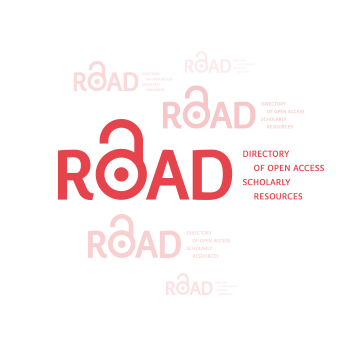EFL Curriculum in Ecuador: The Achievement of Communicative Competences in Learners Graduated from Ecuadorian Public Schools in Milagro
Resumen
This research aims to test baccalaureate students’ oral communication production from public high schools in the 2023 - 2024 academic year in Milagro city. A non-experimental research design was applied in this study to determine the achievement of communication competences based on the second thread from the Ecuadorian EFL curriculum. A questionnaire was elaborated to score listening comprehension skills, and a checklist was used to evaluate oral production skills. Both data collection instruments were applied and graded over 100 with the participation of 300 baccalaureate students from fourteen public high schools, which means that this evaluation procedure allows us to have a quantitative result based on the evaluation criteria and indicators from the National English Curriculum Guidelines. The results were processed using the Statistical Package for the Social Sciences (SPSS) program to determine the media and a general average for our analysis and conclude if baccalaureate students achieved a pre-intermediate-level proficiency (B1) in their oral communication production. For this reason, this study wants to measure oral communication production and prove if the English learning process has been achieved successfully according to the curricular objective of English as a Foreign Language in Ecuador.
Descargas
Citas
Alahdal, A., & Al Ahdal, A. A. M. H. (2019). Effectiveness of collaborative learning as a strategy in the teaching of EFL. Opción: Revista de Ciencias Humanas y Sociales, (20), 1026-1043.
Alcaráz-Mármol, G. (2019). Desarrollo de la competencia oral en inglés como lengua extranjera a través de la mediación lingüística en educación secundaria. Elia, 19, 15–40.
https://doi.org/10.12795/elia.2019.i19.02
Alvarez, C. M., & Guevara, P. C. M. (2021). EFL teachers’ perceptions on using pedagogical modules in Ecuador: a focus group interview. Chakiñan, 14, 42–56.
https://doi.org/10.37135/chk.002.14.03
Bernal, M., & Bernal, P. (2020). Using reading to teach English as a foreign language. Maskana, 11(2), 18–26. https://doi.org/10.18537/mskn.11.02.02
Romero-Romero, L. A., De Los Ángeles Ormaza-Pincay, M., Naranjo-Flores, M. I., & Hernández-Intriago, J. C. (2021). Influencia del inglés como segunda lengua en el currículo de la Carrera de Bibliotecología en el Ecuador. Polo Del Conocimiento: Revista Científico - Profesional, 6(3), 40–63. https://doi.org/10.23857/pc.v6i3.2351
Campbell, D. T., & Stanley, J. C. (2015). Experimental and quasi-experimental designs for research. Ravenio books.
Crystal, D. (2003). English as a global language (Second edition ed.). Cambridge University Press.
Guerrero-Quiñonez, A. J., Guagua, O. Q., & Barrera-Proaño, R. G. (2023). A look at university education in Ecuador: politics, quality and teaching. Ibero-American Journal of Education & Society Research, 3(1), 244–248. https://doi.org/10.56183/iberoeds.v3i1.623
Guzmán Jordán, C. C., & Valle Gavilanes, D. del R. (2022). La educación inclusiva en Ecuador. Identificación de características en docentes. ConcienciaDigital, 5(2), 69-87.
https://doi.org/10.33262/concienciadigital.v5i2.2131
Halim, A. . (2022). Curriculum Organization Development Process in Developing Education Indonesia. Indonesian Journal of Education (INJOE), 2(2), 159–169. Retrieved from
https://injoe.org/index.php/INJOE/article/view/21
Hallén, S. (2023). The Effectiveness of Visual Input for EFL Learners’ Vocabulary Acquisition.r, S.
Raza, M., & Seidman, E. (2019). Improving 21st-century teaching skills: The key to effective 21st-century learners. Research in Comparative and International Education, 14(1), 99-117.
Krashen, S. (1982). Principles and practice in second language acquisition.
Llerena, C. L. Á., & Van Ha, X. (2022). Exploring English Language teaching in Ecuadorian Secondary Schools: Teachers’ beliefs about the national curriculum reform. جستارهای زبانی, 13(5), 117–0. https://doi.org/10.52547/lrr.13.5.5
Ministry of Education. (2016). English language curriculum. Ecuador. Retrieved from
https://educacion.gob.ec/wp-content/uploads/downloads/2016/08/EFL-for-Subnivel-BGU-final-ok.pdf
Ministerio de Educación. (2016). Acuerdo Nro. MINEDUC-ME-2016-00020-A
Ministerio de Educación. (Enero - Diciembre de 2023). Rendición de Cuentas 2023. Obtenido de Ministerio de Educación:
https://educacion.gob.ec/wp-content/uploads/downloads/2024/03/09D17.pdf
Reasco, J. N., & Rodríguez, M. P. (2022). Methodological Strategies to Strengthen Oral Communication in the English Language.
Tawil, H. (2018). Task-Based and Situated Language Learning and Its Impact on Language Teaching. International Journal of Language and Linguistics, 5 (4), 202 – 212.
Van Zyl, H., Burger, Y., Carstens, L., & Geyser, M. (2020). Curriculum design as an enabler of student involvement and success in higher education. South African Journal of Higher Education, 35(4). https://doi.org/10.20853/34-5-4267
Warschauer, M. (2005). Sociocultural perspectives on CALL. (J. Egbert, & G. Petrie, Eds.) CALL Research Perspectives (pp. 41-51).
Yousef, R. (2023). The challenges that basic stage EFL students face in online listening comprehension from their teachers' perspectives in Jordan. Technium Soc. Sci. J., 42, 15
Zarfsaz, E., & Takkac, M. (2014). Silence in foreign language learning: an analysis of students’ risk-taking behavior in an EFL classroom. International Journal of Language Learning and Applied Linguistics World, 6(3), 307-321.
Derechos de autor 2024 Ninfa Sofia Guevara Peñaranda, Jorge Francisco Zambrano Pachay, Paolo Geovanny Fabre Mérchan

Esta obra está bajo licencia internacional Creative Commons Reconocimiento 4.0.













.png)




















.png)
1.png)


